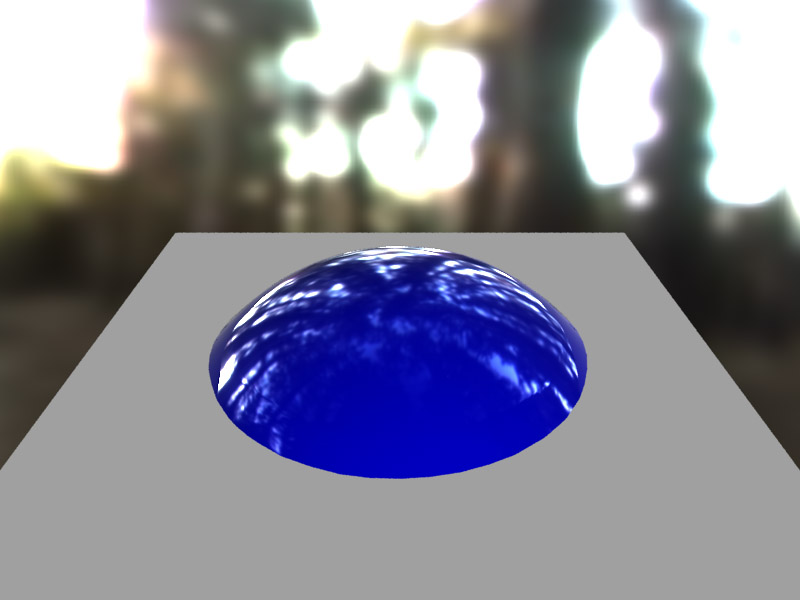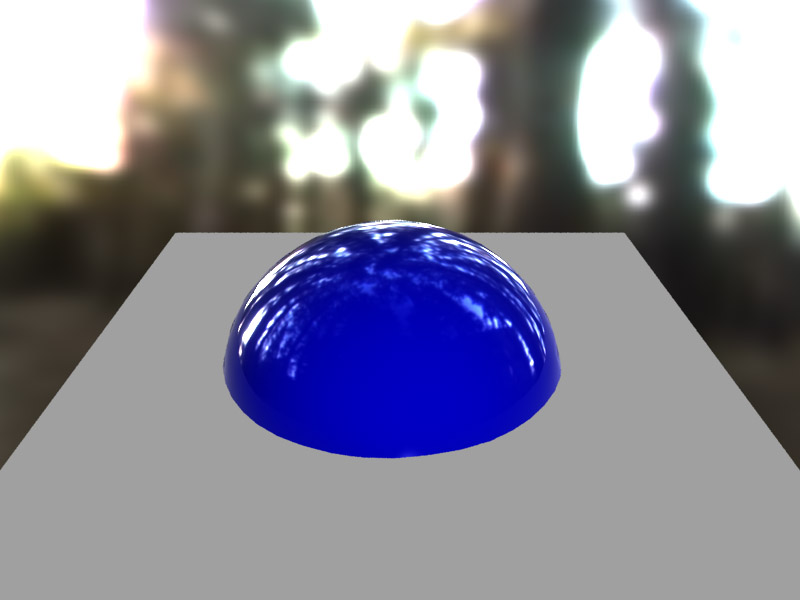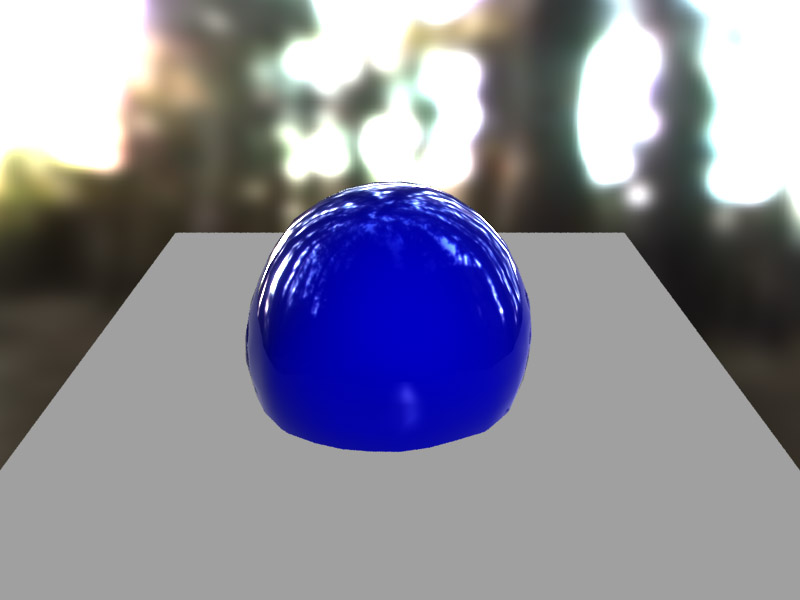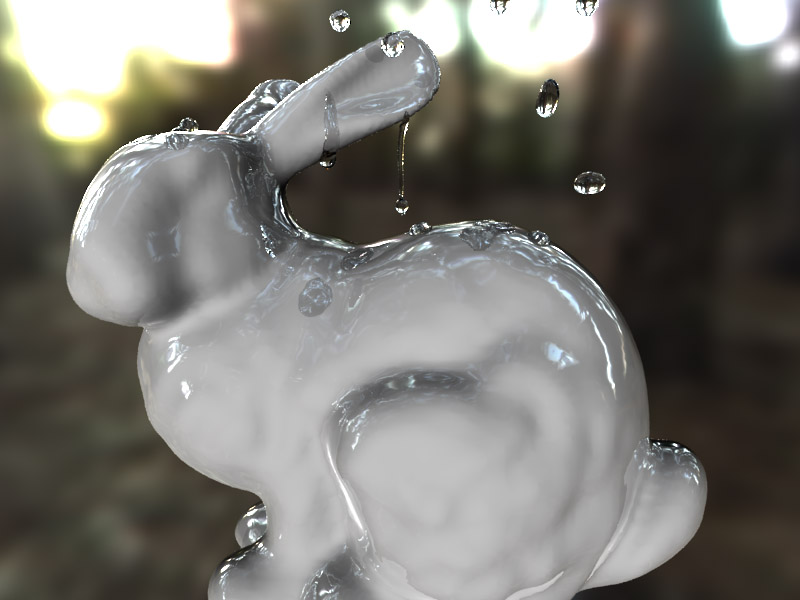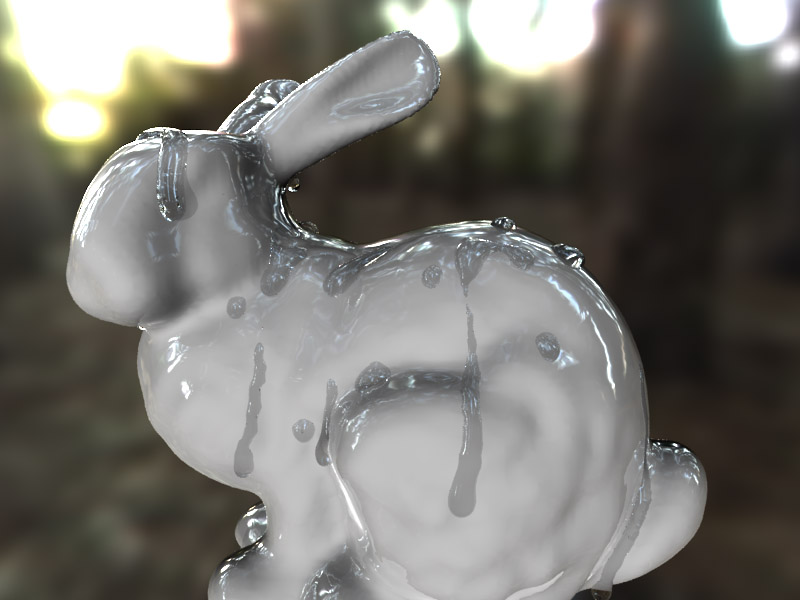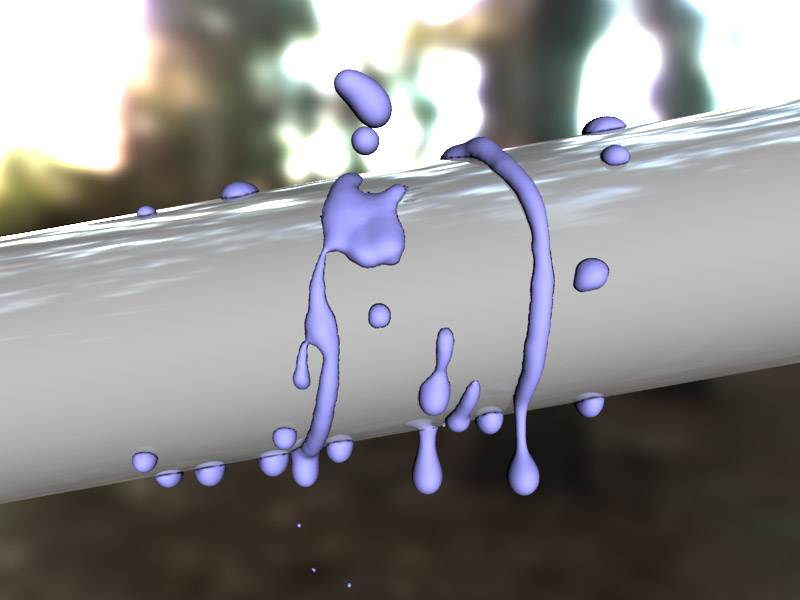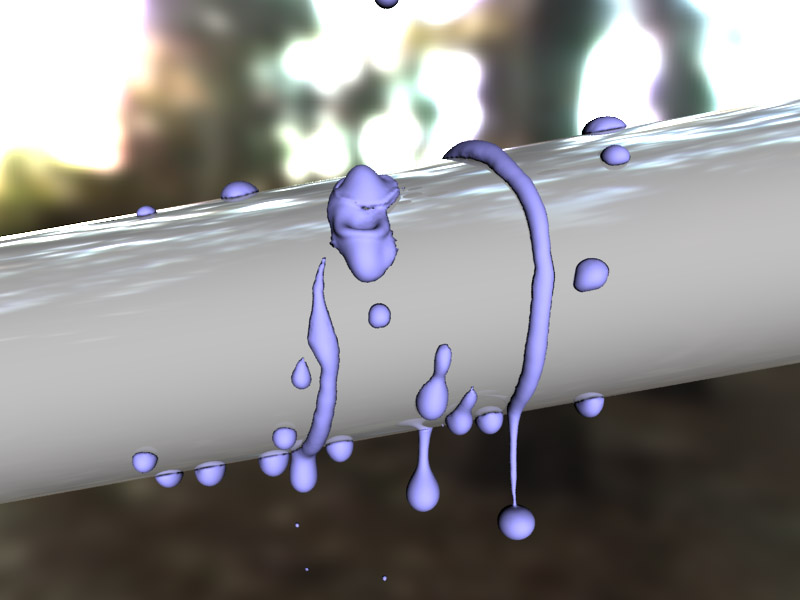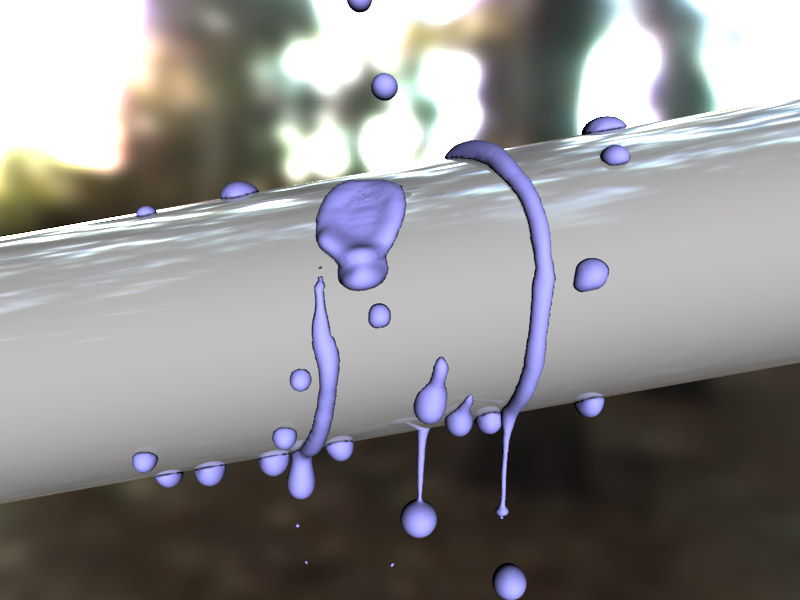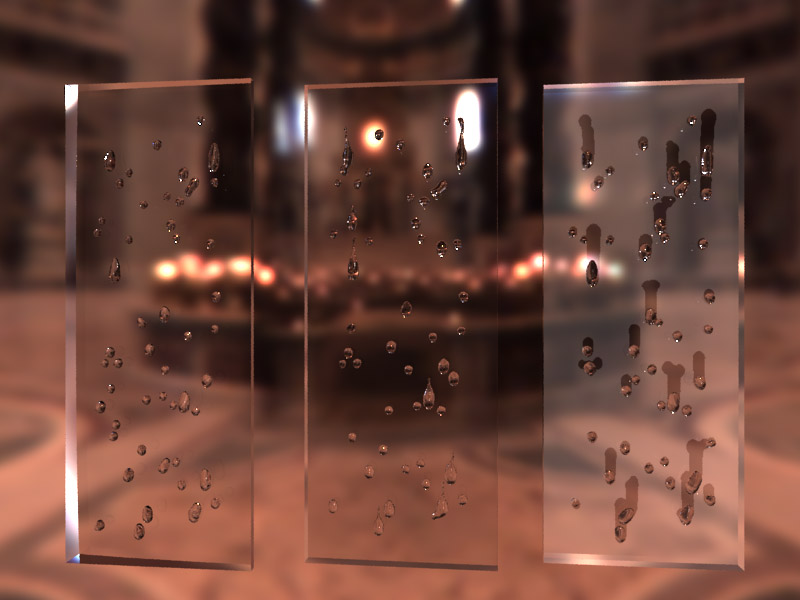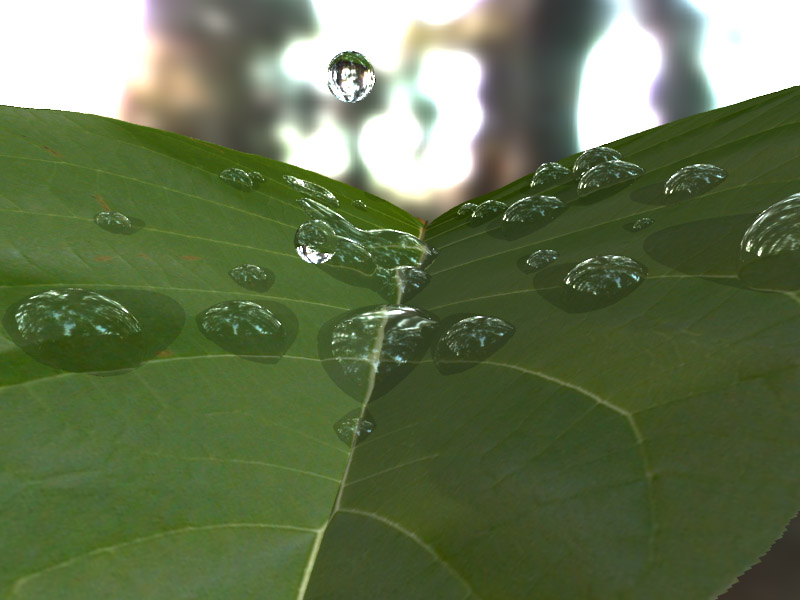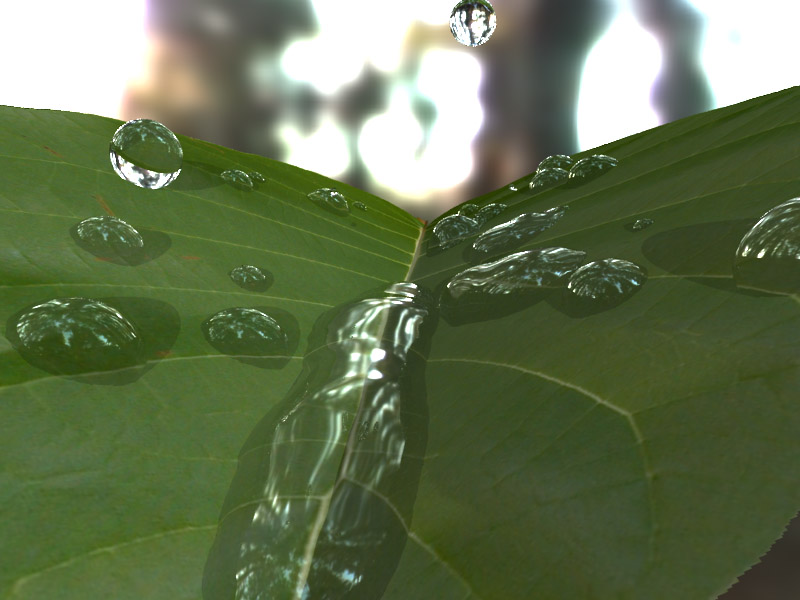Water Drops On Surfaces
| Huamin Wang | Peter J. Mucha | Greg Turk | |
| Georgia Institute of Technology | |||
ACM SIGGRAPH 2005
Video (encoded in DIVX, 86.6MB) or (encoded in QuickTime Mpeg 4, 84.0MB)
Abstract
We present a physically-based method to enforce contact angles at the intersection of fluid free surfaces and solid objects, allowing us to simulate a variety of small-scale fluid phenomena including water drops on surfaces. The heart of this technique is a virtual surface method, which modifies the level set distance field representing the fluid surface in order to maintain an appropriate contact angle. The surface tension that is calculated on the contact line between the solid surface and liquid surface can then capture all interfacial tensions, including liquid-solid, liquid-air and solid-air tensions. We use a simple dynamic contact angle model to select contact angles according to the solid material property, water history, and the fluid front's motion. Our algorithm robustly and accurately treats various drop shape deformations, and handles both flat and curved solid surfaces. Our results show that our algorithm is capable of realistically simulating several small-scale liquid phenomena such as beading and flattened drops, stretched and separating drops, suspended drops on curved surfaces, and capillary action.
Gallery
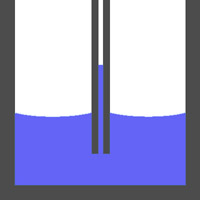
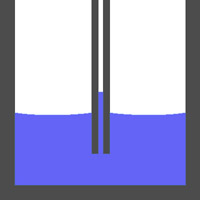
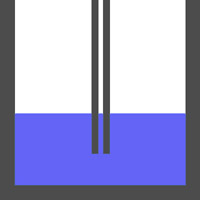
Figure 1: 2D capillary action
Figure 2: Three water beans
Figure 3: Bunny under shower
Figure 4: Drops on a pipe
Figure 5: Three glass panes
Figure 6: Rain in a forest
